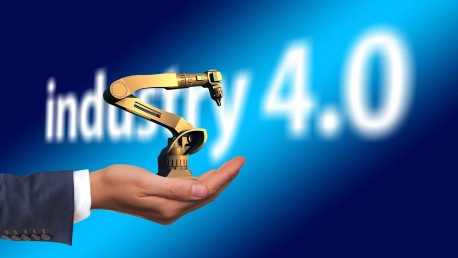Industry 4.0, also known as the Fourth Industrial Revolution, is redefining the manufacturing landscape by integrating advanced technologies such as cyber-physical systems, the Internet of Things (IoT), artificial intelligence, and machine learning. This integration is ushering in a new era of smart, interconnected production environments that promise unparalleled productivity and efficiency.
The Pillars of Industry 4.0
At the core of Industry 4.0 are connectivity and computational power. The deployment of extensive sensor networks and their integration via the internet paves the way for massive data collection and analysis. This forms the backbone of smart factories, where cloud-based computing supports real-time decision-making and machine collaboration.
Smart Interconnected Systems
The concept of intelligent, interconnected systems is central to Industry 4.0, enabling manufacturing systems to dynamically adjust and respond to changing conditions. Digitalized factories, or “lighthouses,” illustrate the tangible benefits of Industry 4.0, setting benchmarks for operational efficiency and flexibility.
Workforce Adaptation and Skill Development
Adapting to Industry 4.0’s technological advancements necessitates a shift in workforce competencies. Upskilling and reskilling initiatives are essential as job roles evolve and new positions emerge, highlighting the need for a highly adaptable and skilled workforce.
Achieving Successful Transformation
Organizations must strategize to fully embrace Industry 4.0 principles. McKinsey identifies six transformation enablers that underscore the importance of agility and avoiding the “pilot purgatory.” Rapid prototyping and iterative processes are critical for scaling new technologies effectively.
Economic Implications of Industry 4.0
The financial impact of Industry 4.0 could be significant, with early adopters poised to gain considerable advantages while those lagging behind risk losing their competitive edge. Technology adoption has become a critical factor for business survival and success in the modern economy.
Impact Across Industries
Industry 4.0 extends beyond manufacturing, potentially revolutionizing transportation, retail, and supply chains. It promotes efficiency, productivity, and sustainability, challenging the outdated notion that environmental responsibility compromises profitability.
Embracing Technological Adaptation and Cultural Shifts
The successful integration of Industry 4.0 technology is contingent on a significant cultural shift within organizations. A commitment to continuous learning and employee empowerment is vital for innovation and flexibility, as businesses navigate the challenges of smart manufacturing and digital ecosystems.









